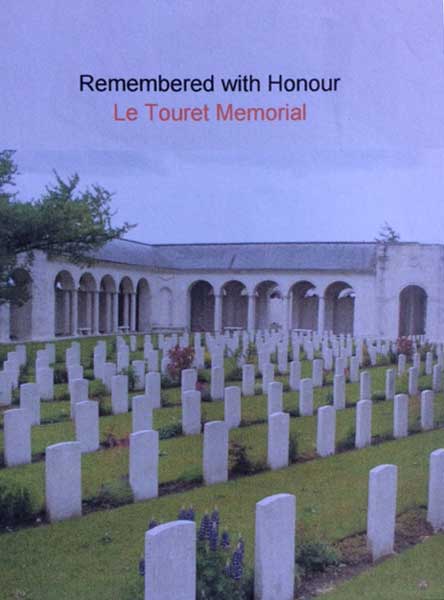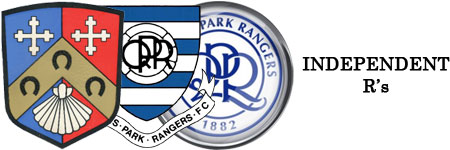The following servicemen had at some point in their careers, played for Queen’s Park Rangers Football Club, and all tragically lost their lives serving their country:
Albert Edward Bonass was born in Yorkshire and joined the R’s in 1939. He became a reserve policeman before joining the RAF. Albert lost his life when his Stirling bomber crashed during a training flight in Tockwith on 8th October 1945.
Frank Cannon made 29 appearances for the Rangers before moving on to West Ham United. His death on 15th February 1916, was reported a week later in ‘The Biggleswade Chronicle: ‘Sgt. Frank Cannon, son of Mr & Mrs John Cannon, fruiterers, High Street, was extremely well known locally.’
He was attached to the 11th Essex Regt. and had been acting as Company Sgt. Major for three weeks before his death. He was wounded by shrapnel and expired on the way to the dressing station. He left a widow and two children.
Corporal Albert ‘Ben’ Butler was the first professional footballer in the ranks of the 17th Middlesex to lose his life.
On the evening of 30th April the 17th Middlesex moved back into the front line. Over the next few days, six men were wounded, including Cpl. Alf Gregson of Grimsby Town and Cpl. Ben Butler of Queen’s Park Rangers.
Ten days later, Cpl. Butler died of his wounds. The Rev. Samuel Green, a chaplain of Casualty Clearing Station No.22, recorded his impressions of the rugged centre-half:
‘A great, big chap lies in his bed – a guard bulges up the blankets over his leg.’ “Well, Corporal, how are you now? – “Bad. This leg is done in. No more football for me. I’m a ‘pro and play for…” He left a widow and two young children.
Charlie Clarke made six league appearances for the R’s between 1936 and 1938. He was a Luton Town player at the time of his death in March 1943.
Apart from winning more than 30 amateur caps for England, Joseph Dines also played in all three matches for the Great Britain team in the 1912 Olympics, which earned him a gold medal. Joseph was cut down on the Western Front by machine gun fire on 27th September 1918.
Albert Edwards made 17 1st team appearances for QPR. He lost his life in the Great War.
Alan Fowler guested a few times for the R’s during 1940/41 and also later during the 1943/44 season, but he was actually on Swindon Town’s books. Sgt. Fowler served in the Dorsetshire Regiment and lost his life in July 1944 following the D-Day landings.
Oscar Horace Stanley Linkson: Andrew Riddoch’s highly recommended book, “When the Whistle Blows’ mentions the time that this former Manchester United right-back was actually arrested on one occasion after he absented himself with Pte. Wilfred Nixon of Fulham to play for the Rangers at White Hart Lane.
He enrolled with the 1st Battalion of the Middlesex Regiment. Oscar went missing on 8th August 1916 during the battle to take Guillemont Station.
His body was never found and his mother never accepted that her son was dead, choosing to believe that he had run away to escape what she believed to be an unhappy marriage.
Evelyn Henry Lintott signed for QPR in 1907 as an amateur and was QPR’s first full England international. Lt. Lintott was killed whilst leading his men of the 15th West Yorkshire Regiment on the first day of the Battle of the Somme.
Robert McLaren Law: His lone Rangers appearance was against Plymouth Argyle in the final Southern League game of the 1910/11 season.
Pte. Law served with the 4th Battalion Cameron Highlanders and died from his wounds on 18th May 1915, aged just 24. He is remembered with honour in the Le Touret Memorial.

(The Le Touret Memorial is located in the Pas-de-Calais region of France. The memorial lists 13,389 names of British and Commonwealth soldiers with no known grave, who were killed in the area prior to the start of the Battle of Loos on September 1915)
John H. Pennifer arrived at QPR in 1913, and after just three appearances, he enlisted the following year. John was one of the many fatalities at the Battle of the Somme.
Albert Rogers joined the Rangers in 1907 and went on to score ten goals in his 34 appearances for the club. Three years later he was transferred to Bristol Rovers. Albert enlisted in the Middlesex Regiment and later joined the East Surrey’s. He was killed in action on 4th April 1918.
Harry Vernon Thornton made 37 appearances for QPR and also scored ten goals. He was one of the many players to join the Footballer’s Battalion. Harry lost his life in France.
Corporal John Tosswill made three appearances for the Rangers before joining the Royal Engineers. He became a dispatch rider, but had to return home after being wounded. Sadly he passed away on the operating table in Eastbourne Military Hospital on 28th September 1915.
Also to be remembered are two R’s fans who sadly lost their lives in the recent conflict in Afghanistan:
Lance Corporal Tom Keogh came from the Hallfield Estate in Paddington and was only 24 when he died from a gunshot wound in Sangin, Helmand Province.
And acting Corporal David Barnsdale – 33 Engineer Regiment (Explosive Ordnance Disposal). He was the same age as Tom when he was killed clearing explosive devices.
His parents laid a wreath on the centre-circle prior to the Burnley home game in 2010.
WE WILL REMEMBER THEM
Steve Russell
(My thanks to Andrew Riddoch and Colin Woodley for their assistance)
